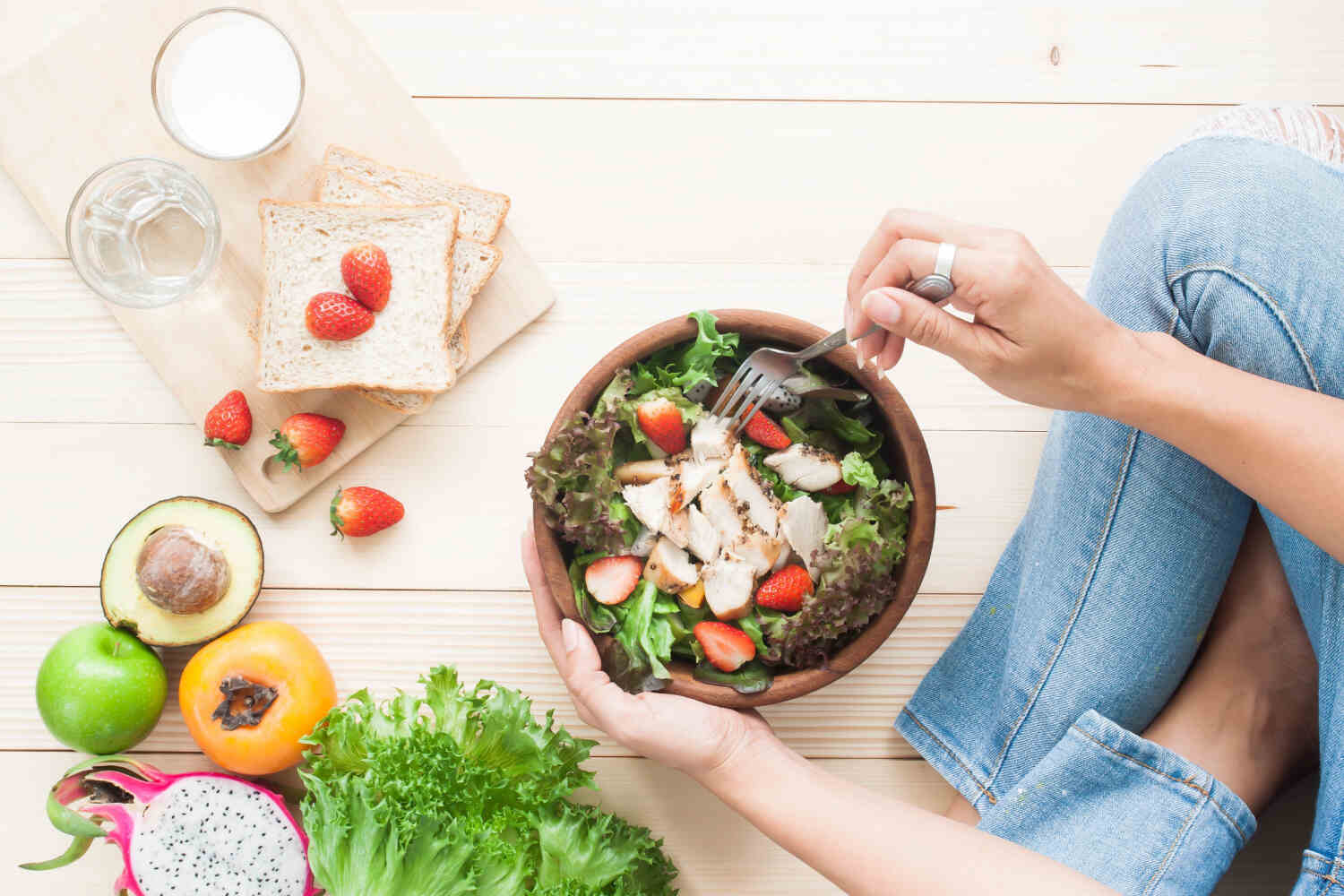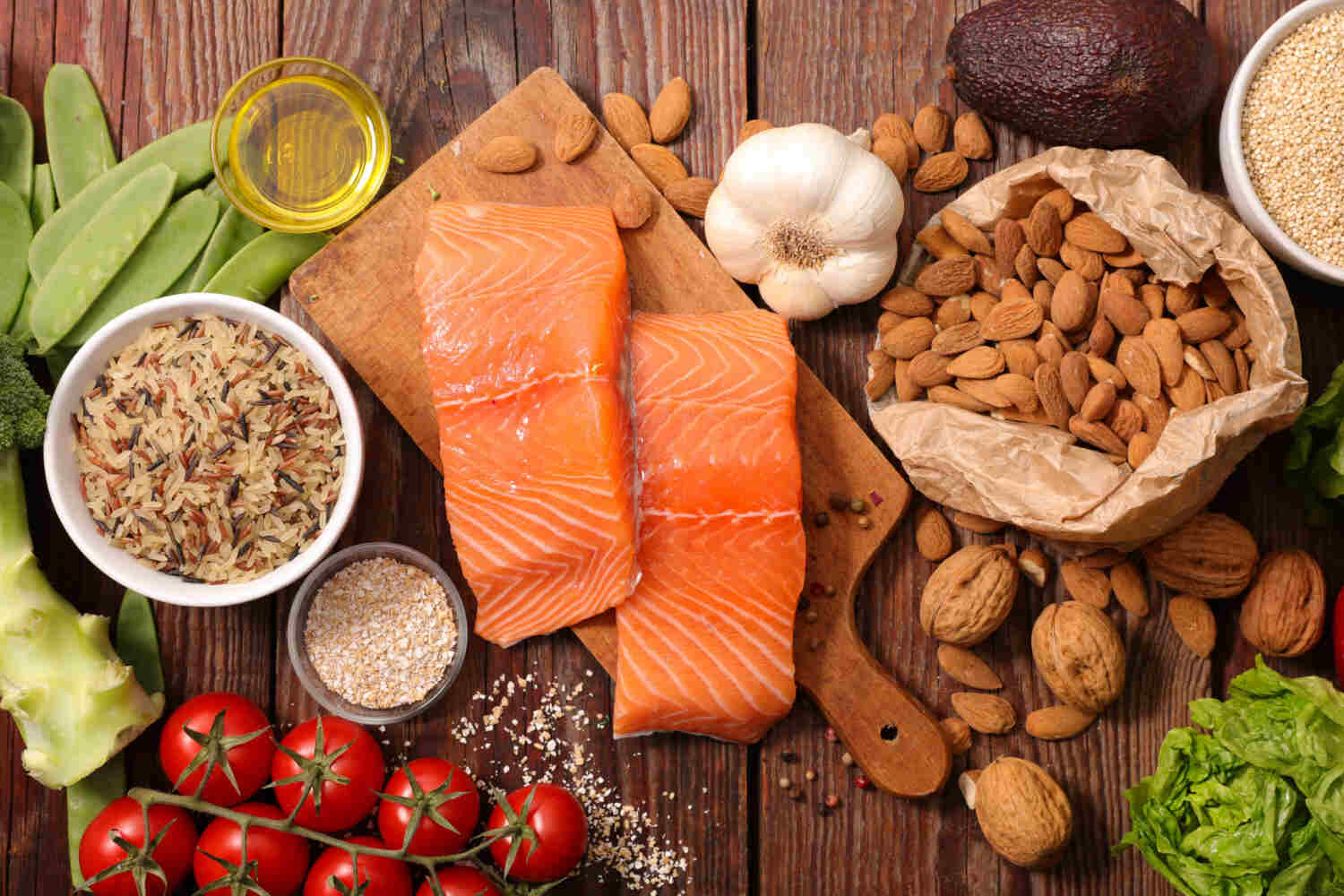
Just the way you want to make your home baby-friendly and habitable before welcoming your little one for the first time, you should also make your body habitable for their healthy growth and development. Thus, it is important to start following a healthy diet and weight for at least 3 months before you try to conceive. But do you know what should be in the best diet for female fertility?
The prenatal diet should be full of goodness for your baby. This is because the food that you take and the lifestyle that you lead will ultimately shape the physical as well as psychological characteristics of your baby. Wondering about what to eat or how to start your prenatal diet? Here is everything you need to know about the best diet for female fertility.
In This Article
- The Foundation Of A Prenatal Diet
- Nutrient-Rich Foods For Female Fertility
- Managing Weight And Calories
- The Role of Supplements: Prenatal Vitamins And More
- Foods To Limit or Avoid In Your Prenatal Diet
- FAQs
The Foundation Of A Prenatal Diet
The foundation of a prenatal diet should be to ensure maximum nutrition for both the mother and the baby. The prenatal diet must contain various nutrients like vitamins, minerals, protein, and healthy fats for better conception chances and better health post-conception. The key nutrients that must be present in a prenatal diet are;
1. Folate or Folic Acid
It is one of the most important nutrients that you need before and during pregnancy. This is because folic acid aids in the formation of the neural tube of the fetus. Lack of folic acid in the mother’s diet can lead to birth defects such as spina bifida and anencephaly as suggested by a study published in MDPI.
2. Calcium
What you eat during your prenatal diet has a vital bearing on your conception and pregnancy. Calcium makes the bones of the baby. It also makes the bones of the mother stronger but flexible to uphold the extra weight and strain on them during pregnancy. A study published by NIH also suggests that sufficient calcium in the mother’s diet prevents preterm birth and preeclampsia.
3. Iron
Your body will require more oxygen-rich blood to ensure enough oxygen supply to the reproductive organs. It is iron that forms hemoglobin in red blood cells that traps oxygen and delivers it to each cell of your body. A deficiency of iron can cause anemia, irregular menstruation, and pregnancy loss. So, iron should be in your regular prenatal diet.
4. Omega 3 Fatty Acids
This nutrient forms the brain and retina of the fetus. It also determines the gestation age and birth weight of your baby. So, for the neurological and optical development of your baby and a healthy birth weight, once you are pregnant, you need to include omega-3 fatty acids in your prenatal diet once you start planning to have a baby.
Nutrient-Rich Foods For Female Fertility

Now that you know the nutrients you need in your prenatal diet, it is time to search for the foods that contain them. Here is a little bit of help for you;
- Eat green leafy vegetables, legumes, and cereals to ensure folate in your diet
- For calcium, eat dairy products such as milk, curd, paneer, and cheese. Almonds and salmon fish also contain calcium
- To get iron you can have meat and fish or in vegetable options you can take spinach and lentils
- Seafood and saltwater fish like tuna, salmon, and sardin contain omega-3 fatty acids. Chia seeds, flaxseeds, walnuts, soybean oil, etc. are plant-based sources of omega-3 fatty acids.
- Eat whole grains, fruits, and vegetables along with their skins to get fiber in your daily meal.
- To avoid dehydration drink plenty of water and homemade fruit juices with no additional sugar.
Managing Weight And Calories
Managing your weight and the calories you take every day is important when you are planning for a baby. Both being overweight and underweight can create complications once you get pregnant. A study published in Europe PMC shows that women who were underweight or whose BMI was below 18.5 before pregnancy delivered babies with low birth weight.
On the other hand, women suffering from being overweight gain more weight during pregnancy and develop high blood pressure and gestational diabetes as a result of it. Besides, both being overweight and underweight reduces your chances of conception as in both cases your ovulation and menstruation get irregular or reduced in numbers.
Thus, it is important to stay within the healthy BMI (Body Mass Index) range, i.e. between 19 to 25. You can check your BMI in the NHS BMI calculator. BMI calculates the weight of a person in respect of height and gender. If your BMI is more than 25 then reduce some weight before getting pregnant. And if it is below 19 then put on some weight for a smooth pregnancy.
The Role of Supplements: Prenatal Vitamins And More

It is always good to get all the necessary nutrients from your daily diet. But sometimes it gets difficult to organize your regular diet by keeping all the nutrients in mind. In case you are unsure about following the best diet for female fertility, you can rely on supplements. You can take multivitamin supplements if you think you are not eating enough fruits and vegetables or if your doctor finds a deficiency of nutrients in you then supplements can be quick solutions.
Multivitamin tablets and folic acid supplements are widely used in both pre-pregnancy and pregnancy periods. Some prenatal vitamins contain folic acid so you will not have to take folic acid supplements additionally. Your doctor can also prescribe you multivitamins in the prenatal stage if you have conditions like;
- Previous baby with a spinal or neural defect
- Any close relatives or their baby has Spina bifida or neural tube defect
- You have anemia, diabetes, or thalassemia
- You have celiac disease or sickle cell disease
- Your BMI is less than 19 or more than 30
Do not take prenatal supplements without consulting a gynecologist as high doses of them can lead to adverse effects. Also, check that the supplements do not have a retinol form of Vitamin A and fish liver oil as they are harmful to the fetus.
Foods To Limit or Avoid In Your Prenatal Diet

When it comes to the best diet for female fertility, it is important to know what food to avoid as well. You will have to let go of some foods or limit their intake when you are pregnant or trying it. Here is a list of foods you need to avoid or limit;
- Alcohol: You will need to avoid alcohol during your trying to conceive period and continue abstaining as long as you are breastfeeding
- Cigarette: Cigarettes are extremely harmful and can hamper your chances of conceiving. Even passive smoking is bad for your fertility.
- Caffeine: Though occasional intake is harmless, excessive intake of caffeine and caffeinated drinks may interfere with conception.
- Processed food: Processed food contains salt and preservatives that are not good for your fertility.
- Artificial sweeteners: Cold drinks, beverages, ice cream, pastry, jams, etc. contain excessive sugar that can increase unnecessary weight gain and hamper your fertility levels.
Along with these, avoid unpasteurized dairy products and raw or undercooked eggs, sprouts, and unwashed fruits and vegetables to prevent fungal or bacterial infections that may interfere with your chances of getting pregnant.
The Bottom Line
Start following a healthy lifestyle and healthy diet as soon as you decide to have a baby. Following a pre-pregnancy best diet for female fertility and lifestyle moderation will eventually help you during your pregnancy days as well. Follow healthy eating and healthy living norms for at least 3 months to properly detoxify your body and then try for a baby. Include your partner to do the same, as both of you will equally contribute to forming the first trace of your baby.
FAQs
1. What Foods Increase Female Fertility?
The best foods that increase female fertility include whole greens, beans and lentils, organic fruits and vegetables, yogurt, cheeses and mercury-free fish, and seafood such as salmon. You must ensure a well-balanced diet covering all food groups in the meals that you have in a day.
2. Which Fruits Increase Egg Quality?
Vitamin C is an important nutrient that may significantly contribute to improving your egg quality. Consuming vitamin C-rich fruits such as grapefruit, oranges, and lemon may help improve your egg quality. Try to increase your intake of antioxidant-rich foods to ensure that your egg quality has a chance to get better.

